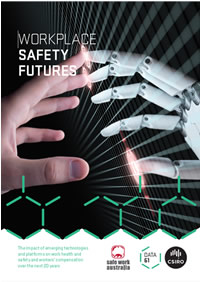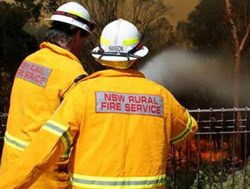 A new study released by Safe Work Australia and the Commonwealth Scientific and Industrial Research Organisation’s (CSIRO) Data61 group reveals that robots and automation generally will make work safer for future generations.
A new study released by Safe Work Australia and the Commonwealth Scientific and Industrial Research Organisation’s (CSIRO) Data61 group reveals that robots and automation generally will make work safer for future generations.
The Workplace Safety Future report explores how six mega trends — ranging from advancing automation and the gig economy to rising screen time and an ageing workforce — will impact on work health and safety (WHS) and workers’ compensation in the next two decades.
Research Analyst at Data61 and co-author of the report, Joanna Horton said the study, which leverages scenario planning, aims to provide policymakers and businesses with the insights they need to ensure the long-term effectiveness of WHS and workers’ compensation systems, as the workforce faces rapid change.
Ms Horton said the Australian workplace had undergone significant structural and demographic changes along with digital technologies such as automation, artificial intelligence and augmented reality entering the workforce in greater numbers.
“This will have implications for workers’ compensation and the WHS environment in Australia and may require fresh approaches to managing risks and supporting sick or injured workers,” Ms Horton said.
“The report investigates plausible future scenarios to provide policymakers and businesses with the insights they need to ensure the long-term effectiveness of Australian WHS and workers’ compensation systems, in the face of rapid change.”
She said one of the six mega trends — automated systems and robotics — would present both challenges and opportunities from a WHS and workers’ compensation perspective.
“Physical workplace injury is predicted to fall by 11 per cent by 2030 as the use of robotics, including artificial intelligence and drones, replaces dull, dirty and dangerous tasks,” Ms Horton said.
“However, growing use of robots in the workplace raises questions about whether current ways of identifying, assessing and controlling WHS risks will be adequate in addressing potential new risks that may arise.”
She said a significant shift towards freelance task-based work in Australia, with fewer workers covered by workers’ compensation, might also have long-term implications on public health and social security systems if injured workers were not covered by some form of insurance.
The 52-page report can be accessed at this PS News link.











